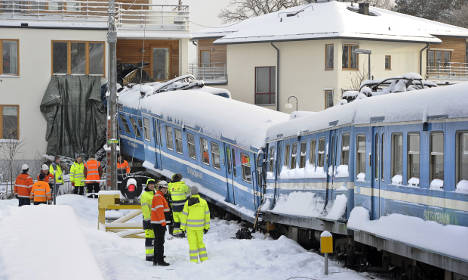
The Saltsjöbaden rail crash made international news in 2013. Photo: Anders Wiklund/TT
King's daughters learning about his career. Photo: Private
Moving abroad can involve a lot of firefighting for any expat. But British-born Jeffrey King has literally been putting out fires during a ten-year career with the Swedish Fire and Rescue Service.

